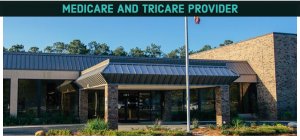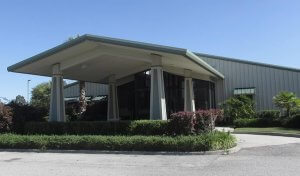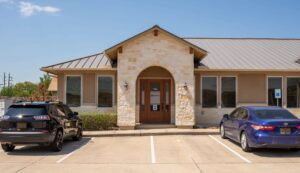Louisiana Drug Rehabs

Covington Behavioral Health Hospital
Covington , LA


Baton Rouge Behavioral Hospital
Baton Rouge , LA

Vermilion Behavioral Health Systems
Lafayette , LA




Louisiana Addiction Treatment
The most commonly abused substances in the Bayou State include:
While all of these drugs are problematic in Louisiana, addiction rates vary between regions. For example, the highest concentration of ecstasy abuse cases is found in Shreveport’s nightclub scene. Heroin poses a particularly big threat to the city of New Orleans. Meanwhile, Louisiana’s rural communities are ideal for marijuana growers and methamphetamine manufacturers.
Cocaine is considered one of the top drugs of choice in Louisiana and is primarily transported into the state via interstate highways. Miami and Houston supply a majority of Louisiana’s cocaine, and both cities get their supply from Mexican, Colombian and Caribbean traffickers.
Drug Laws In Louisiana
Louisiana has some of the harshest penalties in the nation for drug possession. Louisiana classifies illegal substances into five schedules. Each schedule determines the dangerousness of a drug, with schedule I being the most dangerous and schedule IV being the least dangerous. Penalties vary according to the type and amount of the substance involved.
| Schedule | Type of Drug(s) Included | Maximum Sentencing and Fines |
|---|---|---|
| Schedule I | Opiates and opium derivatives, including heroin | Up to 30 years in prison and/or fine up to $600,000, or both |
| Schedule II | Opiates and opium derivatives not included in schedule I, including cocaine and methamphetamine | Up to 30 years in prison and/or fine up to $600,000, or both |
| Schedule III | Anabolic steroids, stimulants, narcotics and depressants | Up to 5 years in prison and/or fine up to $5,000 |
| Schedule IV | Other narcotics, depressants and stimulants not listed in schedule III, including alprazolam | Up to 5 years in prison and/or fine up to $5,000 |
| Schedule V | Other narcotics, stimulants and depressants not listed in schedule IV | Up to 5 years in prison and/or fine up to $5,000 |
Marijuana
While marijuana is treated differently than other illicit drugs in Louisiana, penalties are no less harsh. If you’re caught in possession of marijuana, even if it’s your first offense, you will face jail time.
| Possession Amount | Penalty | Maximum Sentencing and Fines |
|---|---|---|
| Less than 14 grams (first offense) | Not classified | Up to 15 days in jail and/or fine up to $300 |
| 14 g to 2.5 lbs (first offense) | Not classified | Up to 6 months in prison and/or fine up to $500 |
| 2.5 lbs to 60 lbs | Not classified | Up to 10 years in prison and/or fine up to $30,000 |
| 60 lbs to 2,000 lbs | Felony | Up to 30 years in prison and/or fine up to $100,000 |
| 2,000 lbs to 10,000 lbs | Felony | Up to 40 years in prison and/or fine up to $400,000 |
| 10,000 lbs or more | Felony | Up to 40 years in prison and/or fine up to $1 million |
Additional factors can determine the type of sentence an offender receives. For instance, if the crime occurred within 2,000 feet of a drug-free zone, like a school or park, the sentence is multiplied by one-and-a-half times the maximum penalty.

Break free from addiction.
You have options. Talk about them with a treatment provider today.
Louisiana And The HIDTA Program
Louisiana participates in the United State’s High Intensity Drug Trafficking Area (HIDTA) program. This program supplies areas of the U.S. critically affected by drug trafficking with resources they need to address the threat. Resources include state-of-the-art drug monitoring technologies as well as dedicated drug task forces.
The Gulf Coast HIDTA supports 12 drug task forces and one intelligence-related initiative in Louisiana. These task forces are located within every major Louisiana city and address the issues like the transportation of drugs over Louisiana’s highways.
The Louisiana counties and parishes included in the Gulf Coast HIDTA are:
- Bossier
- Caddo
- Calcasieu
- East Baton Rouge
- Jefferson
- Lafayette
- Orleans
- Ouachita
Louisiana Harm Reduction Laws
In response to dangerously high drug abuse rates, Louisiana has become one of the most harm reduction-friendly states in the country. Several laws have been enacted to reduce the risks associated with drug addiction and improve the lives of Louisiana’s residents.
911 Good Samaritan Law
The reason many overdoses turn fatal is because 911 isn’t called quickly enough. In fact, some people hesitate to call 911 out of fear of being charged or arrested for their own drug abuse.
Louisiana has a Good Samaritan law that gives a person legal immunity if they call 911 for an overdose. The law applies to someone’s own overdose as well as witnesses to an overdose. However, according to state law, the overdose must have resulted from drugs that were legally prescribed for medical purposes.
Naloxone Availability Laws
Naloxone, the life-saving antidote used to reverse heroin overdoses, became widely available in Louisiana in 2016. The expansion allows people to obtain Naloxone as an over-the-counter medication. Because of this, more lives can be saved from heroin-related overdoses.
Addiction Treatment In Louisiana
From intensive residential care to outpatient therapy, Louisiana’s treatment centers offer specialized care for those who struggle with an addiction.
Drug Courts
Louisiana participates in a drug court program to hear cases that specifically involve drug-related crimes.
Drug courts offer nonviolent offenders with a drug addiction a chance to recover.
Participants in drug courts receive treatment, counseling and any other services they need to get sober. There are currently 50 drug courts in operation in the state.
Drug courts have been tremendously successful in helping people regain control of their lives. As an alternative to jail time, drug courts get to the root cause of the offender’s crime – their drug addiction. By helping people get sober, drug courts significantly reduce recidivism and the chances of a person relapsing.
Looking for a place to start?
Join the thousands of people that have called a treatment provider for rehab information.
Free and confidential
Available 24/7
Access to professional treatment
Inmate Treatment Programs
Inmates in Louisiana are given the opportunity to recover from their substance addiction through programs offered by the state’s department of corrections.
One of the most successful programs is the Steve Hoyle Rehabilitation Program. Located at the Bossier Parish Correctional Facility, the program provides a therapeutic approach to treat and educate offenders with substance abuse disorders. The program, which won a prestigious award in 2015, also works with families of inmates.
Research has shown that strong family relationships help more offenders stay sober after being released from prison.
Since July 2012, more than 2,100 people have graduated from the program.
Find Treatment In Louisiana
Recovering from substance addiction is possible with the right treatment approach. Louisiana has several long-term residential treatment centers located across the state. These facilities typically offer treatment that lasts 60 to 120 days.
After making the decision to get help for a drug or alcohol addiction, many people wonder where they should go for rehab. While there are plenty of options to choose from, it’s important to find a center that offers your desired type of treatment. This is why more people choose to travel out of state for rehab. It is important to explore all treatment options.
For more information on treatment options, contact a treatment provider today.
Published:
Author
Jeffrey Juergens

-
Jeffrey Juergens earned his Bachelor’s and Juris Doctor from the University of Florida. Jeffrey’s desire to help others led him to focus on economic and social development and policy making. After graduation, he decided to pursue his passion of writing and editing. Jeffrey’s mission is to educate and inform the public on addiction issues and help those in need of treatment find the best option for them.
- More from Jeffrey Juergens
- Alabama
- Alaska
- Arizona
- Arkansas
- California
- Colorado
- Connecticut
- Delaware
- Florida
- Georgia
- Hawaii
- Idaho
- Illinois
- Indiana
- Iowa
- Kansas
- Kentucky
- Louisiana
- Maine
- Maryland
- Massachusetts
- Michigan
- Minnesota
- Mississippi
- Missouri
- Montana
- Nebraska
- Nevada
- New Hampshire
- New Jersey
- New Mexico
- New York
- North Carolina
- North Dakota
- Ohio
- Oklahoma
- Oregon
- Pennsylvania
- Rhode Island
- South Carolina
- South Dakota
- Tennessee
- Texas
- Utah
- Vermont
- Virginia
- Washington
- West Virginia
- Wisconsin
- Wyoming
- Guam
- Puerto Rico
- US Pacific Islands
- US Virgin Islands
- Washington D.C.
- American Samoa
Sources
Cities in Louisiana
Feature your center
Ready to connect with treatment seekers across the country? Enter your information to learn about our advertising options and get in contact with our development team.



